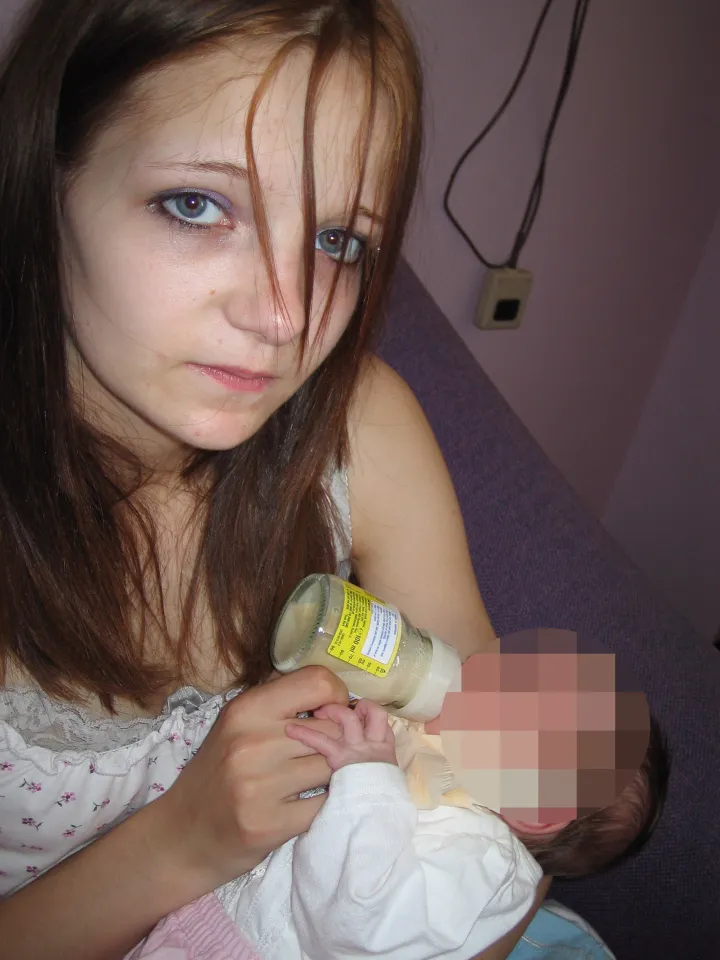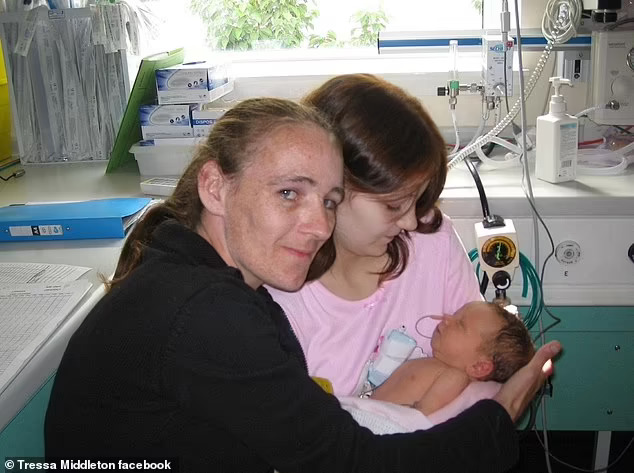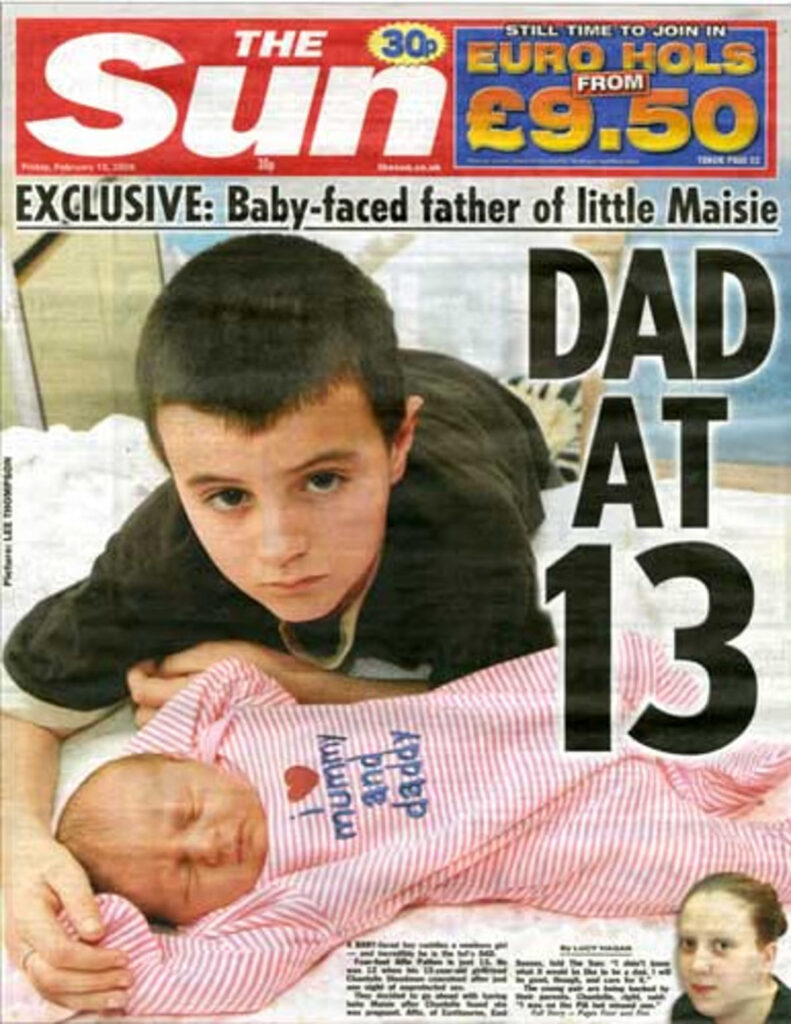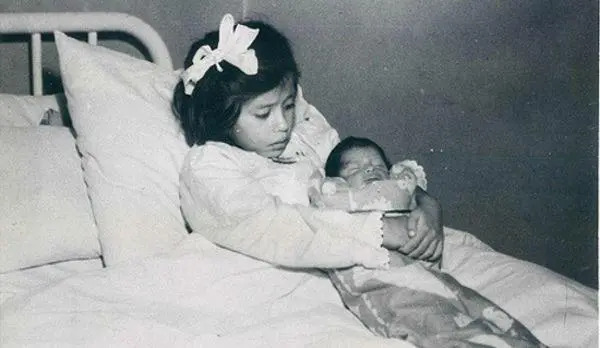When stories about Britain’s youngest parents first made headlines, they shocked the nation and sparked debates about childhood, responsibility, and the role of society in protecting vulnerable children. Many of these cases drew enormous media attention because the individuals involved were themselves barely into adolescence. Years later, the question remains: where are some of these young parents now, and how have their lives unfolded since their early notoriety?

Tressa Middleton: From Childhood Trauma to Motherhood Again
Tressa Middleton became known in 2006 as Britain’s youngest mother after giving birth at the age of 12. Growing up in a troubled household in West Lothian, Scotland, her story highlighted the challenges children face when exposed to instability and vulnerability at such a young age.
Her early years of motherhood were overshadowed by complex family circumstances. As media outlets later reported, her daughter was eventually placed for adoption when Tressa struggled with addiction and emotional distress. In the years that followed, Tressa shared openly about her journey to rebuild her life, overcome personal battles, and find stability.
Now in her late 20s, Middleton has welcomed more children with her partner and recently announced she is expecting again. Her story reflects both the lasting consequences of childhood trauma and the resilience required to move forward.
The Changing Record: Britain’s New Youngest Mother
For many years, Tressa held the title of Britain’s youngest mother. However, in 2021, reports emerged of an 11-year-old girl who gave birth, making her the youngest on record in recent times.
Details of the case remain limited to protect the child’s privacy, but authorities confirmed she was receiving care and professional support. The situation once again reignited public discussion about safeguarding and the systems in place to protect children.
Alfie Patten: The Teen Who Thought He Was a Father
In 2009, the story of Alfie Patten captured worldwide attention. At just 13 years old, he was widely reported as Britain’s youngest father after his then-girlfriend gave birth. For weeks, the case dominated front pages and even drew commentary from political leaders, who raised concerns about the implications of children becoming parents.
However, the story took another turn when a DNA test revealed Patten was not the child’s biological father. The revelation left Alfie devastated, and media reports in later years documented his struggles with unemployment, legal issues, and personal challenges.
By his late teens and early 20s, Alfie faced difficulties with alcohol and became entangled in minor criminal cases. His story has since been used as a cautionary tale about the impact of media exposure on very young individuals who find themselves in the spotlight before they are old enough to fully understand the consequences.

Sean Stewart: Britain’s Youngest Known Father
Before Alfie Patten’s case, Sean Stewart was reported as Britain’s youngest father in 1998. At just 12 years old, he became a parent with his then-15-year-old girlfriend, Emma Webster.
The couple briefly made headlines when their son was born, and Stewart even received a day off from school to mark the occasion. But as the media attention faded, their lives moved in different directions. Emma later married someone else, while Sean struggled with run-ins with the law, including a short period of incarceration in his later teenage years.
Stewart’s case raised early questions about how British society addresses teenage pregnancy, especially when one or both parents are below the legal age of consent.

Looking Beyond Britain: The World’s Youngest Mother
Globally, the title of the world’s youngest confirmed mother belongs to Lina Medina of Peru. In 1939, she gave birth at just five years old, a result of a rare medical condition known as precocious puberty. Her case, while exceptional and medically unusual, underscores how stories of very young parenthood have long shocked and unsettled societies.

The Broader Context: Teenage Pregnancy in the UK
While these cases are extreme and rare, teenage pregnancy has been a subject of ongoing concern in the UK. In the early 2000s, Britain had one of the highest teenage pregnancy rates in Western Europe. Public health campaigns, expanded access to education, and greater awareness of reproductive health have since contributed to a steady decline.
According to the UK’s Office for National Statistics (ONS), the under-18 conception rate in England and Wales fell by more than 60% between 2007 and 2019. This progress highlights how preventive measures, education, and support programs can make a meaningful difference.
Still, experts warn that statistics alone do not capture the human stories behind early parenthood. Each young parent’s life trajectory is shaped not only by age but also by family environment, access to support, and the broader social context.
Media Scrutiny and Its Lasting Effects
Another factor to consider is the impact of media exposure. Many of Britain’s youngest parents were thrust into the spotlight at a time when they lacked the maturity or resources to process public attention. For some, like Alfie Patten, the scrutiny left lasting scars. For others, anonymity allowed them a better chance at moving forward away from headlines.
Advocates argue that while society has a responsibility to discuss these cases, protecting the dignity and privacy of the children involved — both the young parents and their babies — must remain a priority.
Conclusion
The lives of Britain’s youngest parents reflect a spectrum of challenges: family instability, public scrutiny, and the difficulties of growing up too fast. Some, like Tressa Middleton, have managed to rebuild and create new beginnings. Others, such as Alfie Patten and Sean Stewart, remind us of the long-term struggles that can follow childhood exposure to adult responsibilities and media attention.
While rare, these stories are a stark reminder of why safeguarding children, supporting vulnerable families, and addressing teenage pregnancy through education remain critical. They also show that behind every headline, there are human beings who must carry the weight of decisions and circumstances that arrived long before they were ready.
